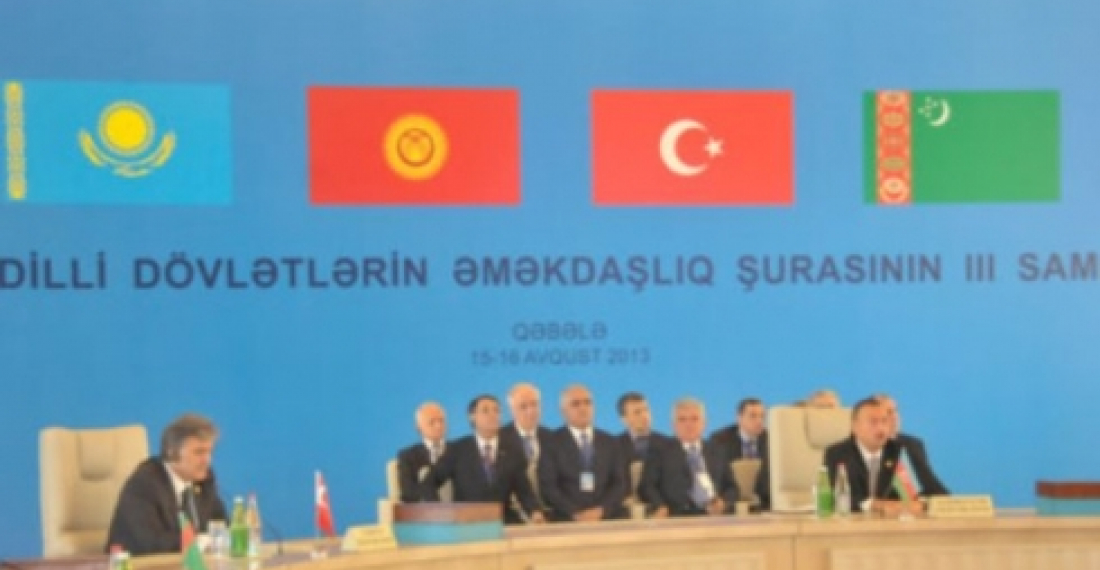The third Summit of the Cooperation Council of Turkic Speaking States has concluded its work in the Azerbaijani city of Gabala. At the end of the meeting Azerbaijan also assumed the rotating Chairmanship of the Council.
The summit was attended by the President of Azerbaijan Ilham Aliyev, President of Turkey Abdullah Gul, President of Kyrgyzstan Almazbek Atambayev and Kazakh President Nursultan Nazarbayev.
The main topic of the discussion at the third Summit of the Cooperation Council of Turkic Speaking States was cooperation in transport spheres and simplification of customs procedures.
The Council was established in 2009 by the Member States - Azerbaijan, Kazakhstan, Kyrgyzstan and Turkey - with a purpose to make a joint contribution to peace and stability in Eurasia. The organization's secretariat is located in Istanbul.
During the summit participants voiced support for the position of Azerbaijan vis-a-vis the Nagorno-Karabakh conflict. The final statement of the Summit states that conflict is the biggest obstacle to regional stability and cooperation. "The sides support the steps that will contribute to the peaceful solution to the conflict. They support the settlement of Nagorno Karabakh conflict within Azerbaijan's internationally recognised borders."
Earlier, Turkish President Abdullah Gul said that he hoped that in the future a summit of the Turkic Speaking Nations can take place in Nagorno-Karabakh.
source: commonspace.eu with agencies
photo: The summit of the Turkic-speaking nations held in Gabala on 16 August 2016.







